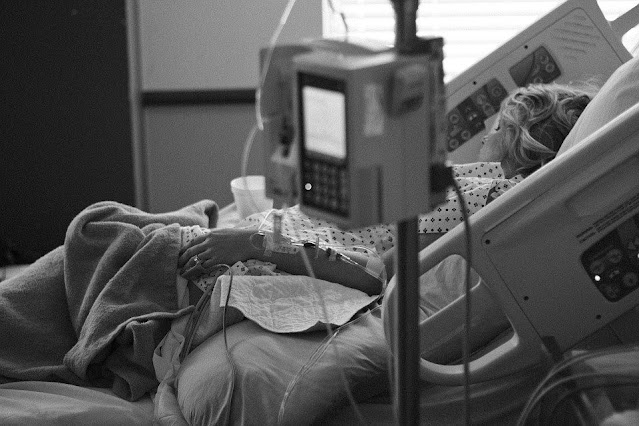How to Know When It Is Important to Visit Your Doctor for Help
Sometimes we have minor ailments that we tend to ignore. It is hard to make an appointment to see a doctor, and life is so busy with work and daily chores that we would not go to a doctor. But have you considered the possibility that you may be doing more harm than good if you neglect your symptoms? A small and insignificant cold could lead to pneumonia or bronchitis. You should know when it is essential to stop everything you are doing and visit your doctor.
A Consistent Fever Is A Cause for Concern
A fever is an increase in body temperature. The normal body temperature is about 98.6 degrees Fahrenheit or 37 degrees Celsius. If you have a higher temperature, it means that there is something wrong. Your body could be trying to fight infection. It could be a cold, cough, stomach infection, or ear infection. Usually, the fever lasts a few days until the infection clears, and then it dies down. However, if the fever lasts more than three days, you should visit a doctor. He will help you to find out what the underlying cause is. Once he treats the cause of fever, your fever will vanish.
Unexplained Weight Loss Could Have Various Reasons
We all love to lose weight and look slim. However, if you lose too much weight, it could mean that something is wrong. It will be especially true if you have not been dieting or exercising, and there seems to be no apparent reason to lose weight. Unexplained weight loss can be due to several reasons. Some of the reasons are Addison's disease, Celiac Disease, Crohn's Disease, and COPD. Dementia, diabetes, heart failure, AIDS, and depression can be an issue too. An underactive or overactive thyroid can also cause weight loss. Cancer is also one of the diseases that cause unexplained weight loss. Hence, it is better to put your mind at rest by ruling out the possibility of all these diseases.
It Would Be Better Not to Neglect Shortness of Breath
Shortness of breath is when you feel that you cannot breathe comfortably. You could be imagining it, or oxygen may not be reaching your lungs for some reason. It is a horrible feeling and can cause so much terror that it makes a person feel worse. Many factors can cause shortness of breath. The reasons could include physical or psychological factors. You could be having a panic attack, or you could be having some other physical problem. If you have a heart problem or breathing problems like asthma, you could suffer from shortness of breath. Bronchitis, pneumonia, and COPD can also cause the issue. If the doctor rules out physical problems, it could be due to bad air quality. It could also be due to stress and anxiety.
Pain Indicates an Underlying Issue That Needs Solving
Pain is an indication that something is wrong, so you should not neglect it. It may be a mild, terrible pain that lingers or a sharp pain that comes and goes. No matter what type of pain it is and where the pain is, you should visit your doctor to check it out. Abdominal pain could be due to ulcers, appendicitis, gall stones, kidney stones, etc. Pain in the arm could be related to spondylitis or heart disease. Arthritis, chronic diseases, heart problems cause pain. The faster you discover why you are having pain, the quicker you can deal with it and manage or cure it.
A Constant Feeling of Confusion Can Disturb Your Normal Routine
If your brain is foggy and you feel confused, it is enough warning for you to see a doctor. It could be the result of some medication or due to an allergy. It could also be due to hormonal changes or trauma. While it is normal to feel out of sorts sometimes, if the feeling persists for a longer time, you should find out why it is so. If you think that you cannot engage in activities, cannot get out of bed in the morning, and cannot get enough sleep at night, do not hesitate to visit your doctor.
Some Other Reasons to Visit Your Doctor
Every time you have a procedure, your doctor will tell you what you should expect during the recovery period. If you experience anything out of the ordinary, you should consult your doctor. If you suddenly have a problem with your vision or experience bright flashes, if your bowel movement or urination has changed, or you have a cold or cough that will not go away, visit your doctor to rule out serious causes.





Comments
Post a Comment